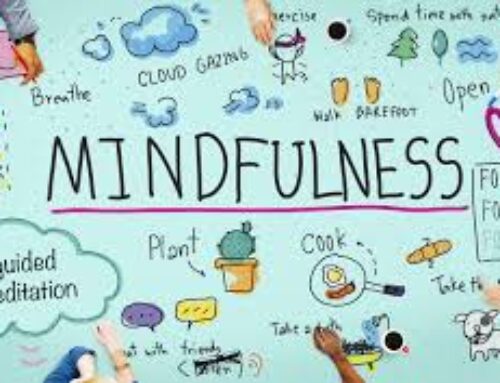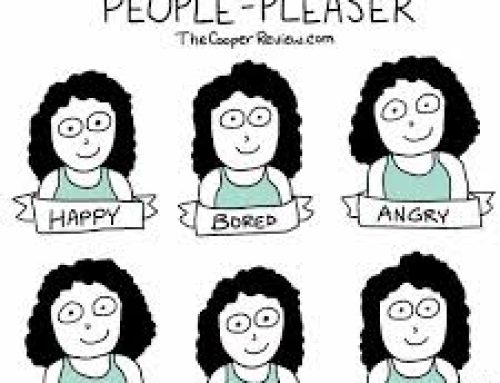Stephanie Phillips, LCMHC, NCC, CCTP was the featured guest for Brunch with BBB podcast discussing “Where Do We Go From Here”. This is a return engagement for Stephanie and a first for the podcast bringing back a former guest! The original podcast was considered so impactful, it still continues to be the most listened to podcast of all the Brunch with BBB episodes. Continue reading for a transcript of the podcast.
BBB: Stephanie, we’re so excited to have you join us for a second time… For those who may not have listened to our conversation on the podcast back in April, can you tell our listeners who you are, what you do, and what the Mindly Group is?
Stephanie: I am a licensed clinical mental health counselor, national certified counselor, certified clinical trauma professional. I am the owner of The Mindly Group, a group psychotherapy practice. My colleagues and I provide mental health counseling to individuals, families and couples.
BBB: Before we dive into all the great things I know you’ll share today, we have started something new since the last time you were on… Since it’s Brunch with BBB, we thought it was fitting to ask all of our guests their favorite thing to eat for brunch or if they have a favorite brunch spot. What would be yours?
Stephanie: I love First Watch in Raleigh. I love their trifecta with eggs and their tasty pancakes. I really enjoy a good pancake.
BBB: Can you talk a little bit about the stigma around mental health? Some see mental health as a real issue, others think it’s a joke, and then others maybe see the importance of mental health but fear it may make them look weak.
Stephanie: I think our current situation has provided us with many examples of how mental health plays a factor in our daily lives and how tenuous it can be. There are many cultures who continue to see mental health concerns as “private issues” and encourage individuals to “get over it or deal with it on their own”. I think this year has been one where most people are realizing there are times when they are “not ok” and want to talk with someone. There is also a bit of stigma with age groups. Older generation and some of the very young generations don’t feel counseling could be helpful. Older generations often feel counseling is “indulgent” while younger ones often feel “someone older than them wouldn’t understand”.
Work is often a place where you don’t wear your “issues on your sleeve”. It feels too invasive and employees often struggle with managing their needs under the pressure of completing expectations. Some workplaces appear to discourage mental health counseling as it may identify someone as “weak” or “unfit” such as police and healthcare workers.
BBB: What exactly is mental health and why is it important?
Stephanie: Mental health is to your mind, what you would consider physical health to your body. We are mentally healthy when we are capable of managing daily expectations, moods, and issues with minimal disruption. We are able to participate in relationships, work and socialize without stress. Stress is defined as the difference between our expectations and the actual environment we encounter.
Mental health is also a compilation of tools we have ready to use when a “crisis” occurs that allow us to work through what is happening and come out on the other side. It encourages us to talk about what is going on to better understand what is happening and the impact to us. Our bodies are marvelous mechanisms that run like a luxury car. If you do not attend to its physical needs (fuel, maintenance, repair) it will break down. If we are running a poorly maintained vehicle, we will likely not make it our destination. Our minds are like the navigation system. If we don’t keep our navigation system up to date, using our resources, we are likely to end up somewhere we don’t want to be or we might get lost.
BBB: How might someone identify whether they’re mentally healthy or not?
Stephanie: We often dismiss early signs in mental health and later find out that we need assistance from our loved ones. They notice the changes and let us know that something might be amiss. If we were to really notice the first signs like “the unusual noise from our car engine” or that “we should get a tune up or gas before our next long journey” we might be better prepared to handle what comes next. Early concerns tend to be around changes to routines, like not socializing to the level you typically do, avoiding situations that seem overwhelmingly difficult, or delaying deadlines. Physical symptoms may include difficulty getting out of bed daily, panic attacks where you feel your heart racing for no real reason, yelling or arguing with others in a way that doesn’t match the situation.
BBB: Back in April we spoke with Stephanie about how to navigate mental health throughout the pandemic. At that time, in early April, I think many assumed the pandemic would last weeks or maybe a month but I don’t know if anyone anticipated it lasting nearly 8 months already? Can you talk about how you’ve seen mental health shift in a response to this?
Stephanie: Lately, it seems like there is a new social conscious focus each week. It is difficult to maintain a heightened focus on something for prolonged periods of time. This is why so many things are in the media right now and why we are paying attention. Those things that would typically distract us like (social outings, travel, sports, etc.) are not occurring and we have excess mental and physical energy to devote to something. Our brains have been conditioned to “work” and we struggle with “downtime without screen time”.
It can be overwhelming and it can feel hopeless to focus on something that seems out of our control. It seems COVID is the background for how we are engaging in all other things in our life. With the election looming, I feel like the tension surrounding political issues will begin to rise.
BBB: As a result of the pandemic, businesses have had to shut down for months and employees have been left without jobs… how might someone cope with these situations that are lasting probably longer than they expected?
Stephanie: Tension surrounding employment stability is very high now. Most people continue to worry if their employer will remain in business and still want to maintain “the status quo” with regards to staffing and infrastructure. Working from home is likely to be around longer than Covid. I find “hope” is a great place to put energy. Finding resources and new ways to do things that give you comfort will likely provide you with more emotional stability as we continue to navigate through events. Putting in place healthy habits such as self care, social interaction and boundaries will provide long lasting effects to help us maintain good mental health.
BBB: Does the importance of mental health end when things start opening back up?
Stephanie: No way. This is what I was referring to when I spoke about maintenance in the luxury automobile. If you want things to be better you have to do something different. If you want your automobile to run in “bad weather conditions” you have to be prepared. Self care is important to your mental health like exercise and fitness is to your physical body.
BBB: In addition to the pandemic, we are approaching the holiday season. I realize for some the holidays are already a stressful time, with dysfunctional families and all… but I know for me, I look forward to the holidays as a time to relax and recharge with loved ones. The thought of not getting to meet in-person can be overwhelming. What advice do you have to share to help us prepare mentally for this holiday season, likely to be very different than ever before?
Stephanie: Yes. It will be different. It is important to take a big picture look at an event. Is it more important to be in the presence of someone (likely compromising safety) or is it about spending time with someone? Our changing social interaction has afforded us opportunities to connect with people that we would likely not be able to physically see as often due to financial and time limits.
-Consider an online family gathering where members from everywhere can be together.
-Plan on keeping traditions as you can. Singing, story telling, etc.
– Perhaps you can choose to eat during this to feel more like a group meal.
-You can decorate your own space and show it off to family.
-Consider mailing gifts early (if that is your tradition) so that you can watch them being opened while you are together online.
I am hopeful that if we can allow ourselves to be creative; we can feel connected and loved. Additionally, with less travel expenses, we are likely to be in a better financial position to avoid large amounts of debt in the following months.
BBB: 2020 has certainly been a year for the books, and to top it off it’s an election year. What advice do you have for coping with current events and keeping your mental health in check? Any advice for how to stay informed on current events without feeling overwhelmed, stressed, or frustrated?
Stephanie: It is important to stay informed, but we can “overfill our tanks”. Consider limiting your sources to 1 or 2 reliable ones. Check in the morning and/or evening and limit looking at social media throughout the day or using the “headlines” to trap you into feeling upset. Consider your comments carefully. Ask yourself would you say that to someone who was right in front of you…would you say that with your mother right beside you? If not, then consider if you are reacting versus being informative. Reactions incite negativity. Information is designed to be helpful and should not contain demeaning statements. If you are calling someone names, are you really being helpful or are you just reacting to the emotion inside you?
BBB: The last time you were on we discussed techniques to prepare mentally for working remotely. Since then, the school year has started back with students having a mix of virtual and in-person learning based on where you live. Can you talk about how to balance working remotely while supporting your children in online learning?
Stephanie: I encourage routines and schedules. Most of the learning is designed to be based on the age of the student. This means that they should be able to sustain their focus/interest during the experience. Sitting next to them, demanding or complaining is not going to be helpful. Consider a private space that feels different than their bedroom. If a desk is not possible, consider a kitchen table or area they will not be disturbed or have access to things that might draw their attention. Based on their age, check in to make sure they are still doing ok and if they have questions. If you are too invested, they won’t ask questions because they will expect you to ask for them or tell them what they need to know. Consider eating lunch together. This will give you an opportunity to see how their day is going and problem solve any concerns. Give them time/space to “chill out” at the end of the school day. We know how difficult it is to stare at a computer all day. They need time to rebuild their energy without expectations. Consider checking grades or talking with teachers in specific intervals. No more frequently than weekly. Let your child take some responsibility for keeping up and asking for what they need. We have several articles on our website blog about parenting, homeschooling and communicating with your children.
BBB: What about if you’re a business owner or your job is moving back into the office, but you have a child with remote learning?
Stephanie: This is tricky. Consider asking your employer for a hybrid job that will work with the school needs. Perhaps you could work in office 2 weeks and be at home for 2 weeks. Also, there are quite a few companies coming up with creative ways to support students during remote learning. YMCA’s, daycares, tutoring facilities, recreation centers, Boys & Girls Clubs. I’ve even had some parents tell me they have formed “neighborhood learning” opportunities where each parent takes the small group for a day or so a week to monitor learning so the other parents can work.
BBB: Any advice for those stressed to find employment – whether they are a recent graduate or lost their job due to the pandemic?
Stephanie: Keep active. Looking for a job is often a numbers game. The more you apply, the higher your odds are of finding work. Consider positions that are not your “dream job” but could offer you financial support during your continued efforts to look for more fulfilling career opportunities. I heard on the news the other day that several retailers are going to be hiring considerably higher amounts of seasonal workers to handle online sales. These might be some you can do from home. Remember its not forever, just for right now.
BBB: What are 2-3 initial steps someone can take towards improving their mental health?
Stephanie: 1) Get moving. Walking just 15 minutes each day keeps your mind in top shape. 2) Intentionally reach out to 1 person each week to see how they are doing and catch up. In a month you can have connected with 4 people you might not have been able to see and you will feel more connected to the world. 3) Be grateful. It is easy to focus on what we don’t have. Focusing on things we are happy to have, changes our brains. It allows us to more evenly acknowledge our situation and gain perspective. A simple exercise, I use is to encourage people to take each letter of the alphabet, in order, and identify 1 thing starting with each letter for the next 26 days. You will be focusing on positive things and your brain will begin to do this in other ways too.
BBB: What top resources would you recommend for creating a positive mental health?
Stephanie: There is a lot of information out there. I would suggest being cautious of something that seems difficult to maintain or appears to much too quickly. When googling, start with a positive outlook in your search. For example, “ways to talk with my teenager” versus “my daughter is driving me crazy”…..or “how to manage my mood” versus “am I depressed”. NAMI (National Alliance on Mental Illness) is a great resource for you to learn more about good mental health, warning signs and where to find help.
BBB: Where do we go from here?
Stephanie: Begin having conversations about difficult things. Be open to listening, not just hearing. Too often, we worry what someone else might say about our “crazy”….but they are likely feeling the same way and would be comforted to know they are not alone.
BBB: Before we wrap up today’s conversation, can you share information with our listeners about how they can learn more about The Mindly Group (website, social media, services you offer, etc)
Stephanie: Our website is www.themindlygroup.com You can find us on facebook at the mindly group, PLLC on twitter at /mindlygroup.
BBB: Any lasting thoughts/ advice you’d like to leave with our listeners?
Stephanie: If you need to feel something…feel hopeful. If you need to do something….be kind. If you need to say something…..be positive.







